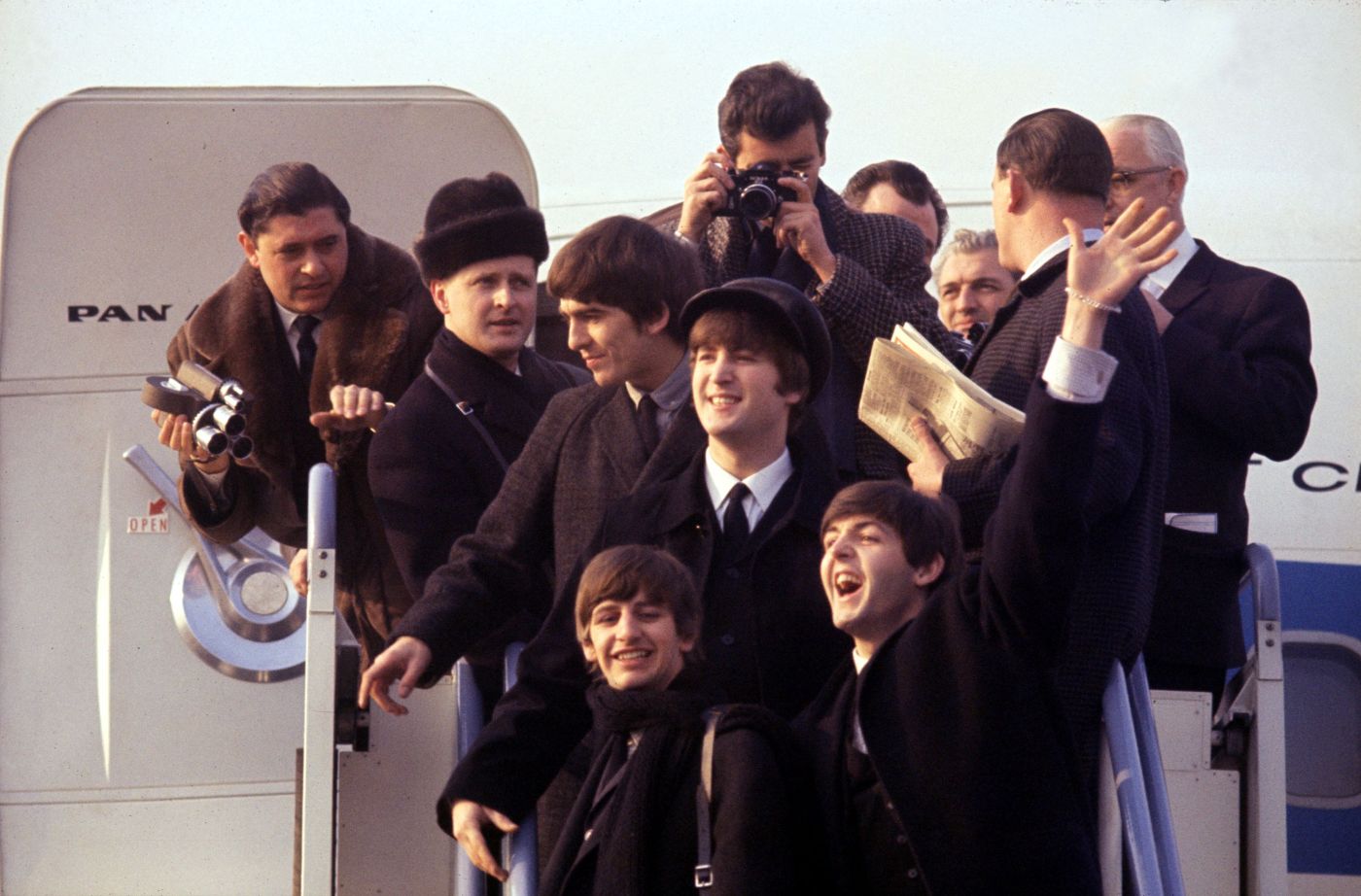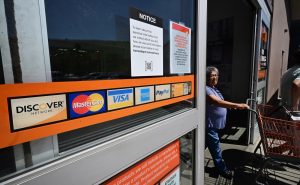
‘Beatles ’64’ captures the Fab Four charming a grieving nation
In the new documentary “Beatles ‘64,” there’s footage of the band onstage giving a performance of “Long Tall Sally” so raucous that not only do the fans scream and shout, but a straight-laced security guard cranes his neck toward the stage to see what all the ruckus is about.
For David Tedeschi, director of the new Martin Scorsese-produced documentary about the Fab Four’s arrival in the U.S., that musical moment was profound.
“I always loved their early music, but I had never paid so much attention to their covers. And one of the performances at the Washington Coliseum is ‘Long Tall Sally.’ I mean, that’s just — it’s an unbelievable performance,” says Tedeschi.
The film on Disney+ explores the band’s arrival in the United States in February 1964 for appearances on “The Ed Sullivan Show,” and its effect on teens and a grieving nation still reeling from the assassination of President John F. Kennedy just months before.
The film incorporates new and archival interviews with the band members; with teens (both back then and as older adults) who waited outside the hotel or watched the band perform on TV; and with famous fans and performers like Ronnie Spector, Smokey Robinson, Ronald Isley and filmmaker David Lynch. There’s dynamic archival concert footage that has been digitally spruced up by Peter Jackson’s teams of tech wizards and there’s charming and illuminating behind-the-scenes footage shot by Albert and David Maysles, the sibling team who would go on to make documentaries such as “Grey Gardens” and “Gimme Shelter.”
The interview has been edited for length and clarity.
Q: Can you describe what the film’s about for people who don’t know?
A: It’s really about two things: The film is about the Beatles’ first trip to the United States. Although Beatlemania had started in Europe, this is where it really hit an astronomical level — and unexpectedly. No one really expected them to be very successful in the United States.
But it’s about something else too, really. It’s about their music and the joy in their music and what an impact it had on young people. And it’s 1964, but it’s the very beginning of the 1960s and four years later, you have the anti-war movement and psychedelia. You know, it seems like everything has changed, but in this movie, you see the seeds of change.
Q: Can you talk about the footage of the Beatles in their hotel rooms shot by Albert and David Maysles?
A: They were not famous filmmakers yet. … We don’t know how they got hired to shoot footage of the Beatles. They decided that they would like to make a movie out of it themselves, and they paid their way to Washington, and they paid their way to Miami and paid for the film there. And for me, it’s a treasure trove of footage. Some of it has been seen before, but there are 17 new minutes of footage in the film of just the Maysles’ brothers’ footage, so there’s a lot more.
Q: Your film has some interesting subplots, like the story of two American teens who went to Liverpool.
A: Jack Douglas is a friend of mine. He was a producer of the music for “Personality Crisis,” which is a movie we did about David Johansen. We were at the Savannah Film Festival, and we were sitting out in the park, and Jack told me his story about going to Liverpool. There’s only a fragment of the story in the film, so you can imagine how wild the story really is, although what’s in the film is pretty wild, too.
I realized from my own experience and from the experience of some very close friends and from Jack telling this fascinating tale — being 19 years old and going to Liverpool and everything that happened to him and as a result of that — that the Beatles have an extraordinary impact on people, like life-changing, and we were looking for people who could articulate that clearly.
Q: Is there a moment that stands out to you?
A: One of my favorite moments is when George Harrison is asked in a much-later interview: “So were you guys really crazy?” He’s like, “No, we were normal and we had each other. Everybody else was crazy.”
Q: There’s a great shot in the documentary where the Beatles come back to their hotel and then go running into the darkened hallway — and the film just cuts out.
A: It’s at the end of a long night at the Peppermint Lounge, and I think at that point, yes, they are performing for the camera, but they’d also had a really long day and they’ve been partying for hours at the Peppermint Lounge, and they can’t quite believe that the Maysleses are following them all the way to their rooms. I think part of the strategy must have been: If we run, we could lock the door.
Q: It’s a sweet moment in the film.
A: It touched me beyond just the music. There’s something joyous and special about what they do. And I hope we got a little bit of the lightning in a bottle.
Tribune News Service


